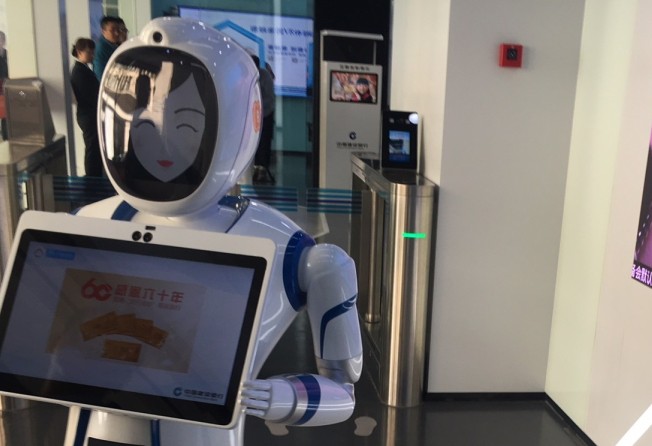Hong Kong banks must catch up to regional rivals in artificial intelligence race
Big players in Hong Kong such as such as HSBC, Hang Seng Bank and Standard Chartered are just scratching the surface when it comes to the use of artificial intelligence

Hong Kong’s banking and finance sector needs to catch up to its regional rivals in the artificial intelligence (AI) race, or risk losing its competitive edge and status as Asia’s premier international financial centre.
According to the Asian Index of Artificial Intelligence developed by the Asia Business Council, the city lags behind its neighbours in the region in embracing AI technology, including the mainland, Singapore and India.
AI has been both idolised and scrutinised for its potentially limitless uses. So it’s no surprise that, on the back of recent significant advancements, conversations on its potential to revolutionise business have exploded.
Although some big players in Hong Kong such as HSBC, Hang Seng Bank and Standard Chartered are using AI technology such as chatbots to serve their customers, this is just scratching the surface.
Just as humans must learn new skills and practices, so too must AI systems take time to learn and adapt – and as we know, learning is an infinite process. AI isn’t perfect, and probably never will be, but banks shouldn’t be put off.
Although it isn’t a technology that will change a business overnight, and in most cases it will be used to complement the human effort, banks in Hong Kong must start experimenting now rather than later, or risk being left behind.
The first step is a compelling data strategy and ownership. But who will drive the AI strategy? Is it the chief digital officer, the chief marketing officer or the chief customer experience officer? What’s certain is that an end-to-end AI strategy for the bank will need to be clearly defined.
Below are four areas where I believe banks can benefit from “quick wins” when it comes to AI:
● Fraud and error detection
AI is already in play in the back office of some banks in the areas of anti-money-laundering or fraud detection – to track and flag suspicious behaviour before it costs the bank dearly in losses or compliance fines. Even seemingly small errors in a fast-paced trading environment can cost banks a huge amount of capital. Using AI to help detect errors before a trade is processed can help banks avoid significant losses. Finastra is already using AI in this way with its Detect solution.
● Workflow automation
Back-office workers in a bank can often be bogged down with tedious, process-driven tasks that suck time away from more strategic ones. If AI can alleviate 80 per cent of these tasks through automation of mass data processing and document screening activities, it can free up humans to focus on delivering added value, particularly around the 20 per cent of tasks that are more complex and require a personal touch.
● Customer service
On the customer side, AI implementations may vary from an automated, chatbot-enabled onboarding service for a bank like HSBC’s Amy and Hang Seng Bank’s Haro and Dori, to an intelligent robo-adviser for the investment management space. These tools can offer speedy responses to simple customer queries – relief for the back office, as well as enhancing customer service efficiency.
● Customer experience
The fourth, and in my opinion most important, use is in the area of improved customer experience. Banks can use AI to provide a consultative approach to their customers. Differentiation in today’s competitive marketplace demands more personalised products and services, using data collected from across the bank and AI-enabled interactions.
Over the next 10 years, banks will be seen more and more as commodity service providers, and they must seek to use AI to differentiate themselves through better customer service and convenience offerings or risk being left behind.
Hong Kong’s banking and finance sector is in a great position to leverage the mainland’s increasingly sophisticated AI technology, but if it doesn’t grasp this opportunity, the city could be left behind as AI takes off on a global scale.
Martin Haring is the chief marketing officer at Finastra